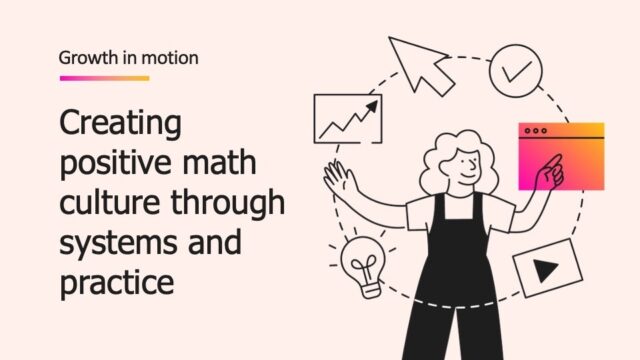
I’m a science teacher. I’m a social studies instructor. I teach English.
As educators, we tend to think in terms of disciplines—but these distinctions only go so far. Skills overlap across disciplines, and cognitive processes are pretty much the same across subjects.
My area of interest and specialty is English language arts. Here’s how the Next Generation Science Standards (NGSS)* foster an interdisciplinary kind of learning.
Science and Literacy in the Classroom
Citing evidence to support a claim is central to science, but it’s also central to English language arts. If you look at the wording in the standards—for example, in the Common Core or Florida B.E.S.T. ELA standards—you’re going to see a huge overlap with NGSS.
Core ELA standards are woven into the NGSS. If you think about NGSS as a tapestry, it would be made of five threads: science and engineering practices, disciplinary core ideas, crosscutting concepts, English language arts, and mathematics. The NGSS is designed to have all the different skills, knowledge, and disciplines work together.
Most teachers are doing this already without realizing it. In English class, students are being asked to read texts closely and cite evidence in response to a question, or to support conclusions regarding an essay or a nonfiction article. Similarly, in science, students are asked to cite evidence to support a scientific claim. In both disciplines, students are asked to write. In science, they’re writing in their evidence notebooks. In English, they may be writing in response to literature. Students in both areas are asked to make presentations and do research.
The NGSS endeavors to embrace the deep integration of language skills in science learning. The goal of NGSS is to help students behave and think like scientists and engineers.
What Do Scientists and Engineers Do?
Scientists and engineers read scientific journals. They evaluate the data, the hypotheses, and the conclusion in the articles within these journals. They do research, often collaboratively, so they’re engaged in communication with their colleagues. They’re creating graphs, charts, and other graphical devices to communicate their findings. And of course, they’re writing—because who’s writing the scientific articles but other scientists?
The NGSS attempts to replicate what scientists in the real world do and to lead students to participate in those very same activities. What are those activities? Much of the time, they’re language-based, so your students will be immersed in literacy in the science classroom.
Embracing Language Arts in NGSS-Based Curricula
In HMH Into Science, we embrace the NGSS in its entirety, and as a result, language arts skills are a part and parcel of the instructional design and the science lessons themselves. Lessons include prompts for the teacher to engage students in summarizing, asking questions, responding to questions, working in pairs, and collaborating in small groups. This is very much part of the language arts element in the NGSS.
In addition to that, specific features in the student-facing and teacher-facing materials focus, in part, on language. Of course, the guidance is different for first and second graders than it is for fifth and sixth graders, so it’s all calibrated according to a student’s age and knowledge base. But the point is that at any point in the program, students have access to this online handbook.
NGSS in the Classroom and Beyond
The NGSS has already correlated language arts skills to performance expectations. The role of the teacher is to guide students to use language arts skills to enhance their science learning. With the NGSS, we embrace an interdisciplinary approach to science learning, which enables students to gain ownership of science concepts that stay with them for life.
The views expressed in this article are those of the author and do not necessarily represent those of HMH.
***
Read "Aligning English Language Arts and Science" by Reading and ELD Specialist and HMH Into Science author Marjorie Frank. Download the article below.

*Next Generation Science Standards and logo are registered trademarks of Achieve. Neither Achieve nor the lead states and partners that developed the Next Generation Science Standards were involved in the production of, and do not endorse, this product.
This blog, originally published in 2018, has been updated for 2022.












